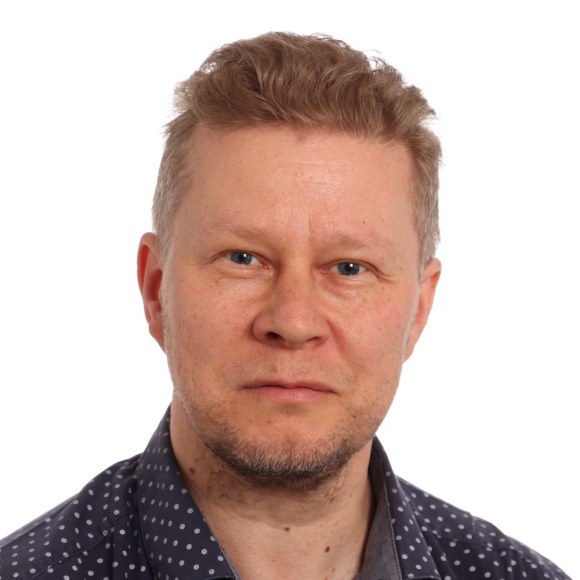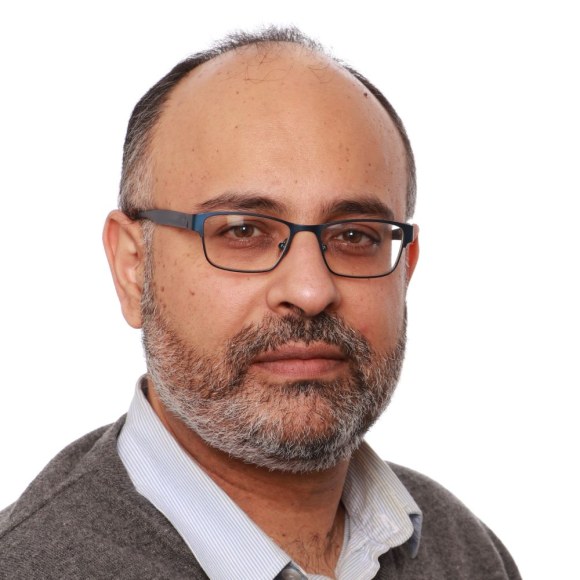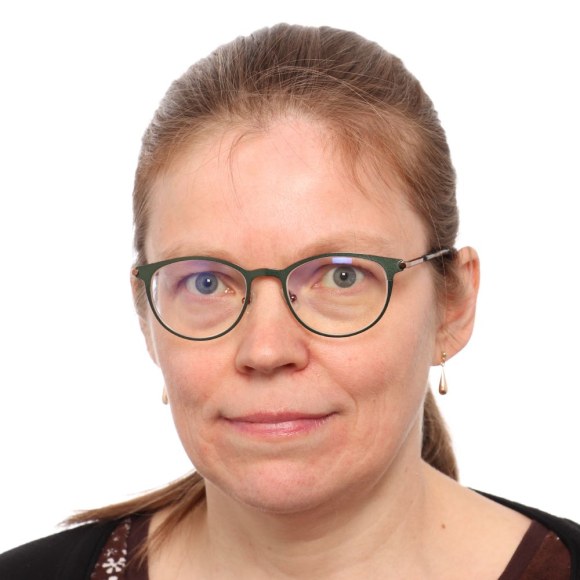People
This page lists TaSTI's personnel and all those who do research and/or operative tasks somehow related to TaSTI.
This page lists TaSTI's personnel and all those who do research and/or operative tasks somehow related to TaSTI.

A professional in R&D activities.
I am involved in the implementation of TAMK's various projects. My aim is to make sure the projects are being delivered with high quality, in accordance with TAMK's strategic goals and that they are producing desired results. I am especially involved in international projects (Erasmus+, Interreg, Team Finland Knowledge), but also in national ones. I am also involved in managing TAMK's mobility projects.
Implementation of projects and development of R&D activities. Building domestic and international R&D networks.


I work as Professor in Sociology at the Faculty of Social Sciences in Tampere University (TAU). I am also Director of TaSTI (Tampere Centre for Knowledge, Science, Technology and Innovation Studies). My research contributes to interdisciplinary studies on knowledge production, technologies and valuation regarding health, biomedicine, gender, and embodiment. My work has focused on scientific and technological modification of reproduction and aging; for example, through prenatal screening, genetic testing, IVF, biological medicines, and stem cell-based delaying of aging. I explore the societal implications of these practices particularly from the perspectives of biopolitics, bioindustrialization, feminist new materialism, and speculative futures. Methodologically, my work ranges from historical sociology to multi-sited ethnography with emphasis on combining different types of qualitative materials.
I am engaged in the popularization and public dissemination of my research in various ways. I have been invited to talk about the ethics and societal effects of biomedical technologies in various public events as well as training events for clinical staff in University Hospitals and patient organizations. I have written about my research in blog texts published for instance in Alusta! and Ilmiö online medias.
I hold a DrSocSc in Sociology from the University of Helsinki, where I worked as Academy Research Fellow (2015-2018) and University Lecturer in STS (2015). I have been a Visiting Fellow at the London School of Economics, King’s College London and University of Cambridge.
Further information from personal site.
Research profile:
sociology, science and technology studies, gender studies, social theory, power analytics, materialisms
Projects:
VALDA - Valuating Lives through Infertility and Dementia: Science, Law and Patient Activism, funded by the Academy of Finland (2017-2022). More information on the project here.
ReproFutures - Reproductive Futures, funded by the Finnish Cultural Foundation (2019-2022), led together with Dr Riikka Homanen. More info on the project's own website and social media @reprofutures
A New Agenda for Understanding Industrialised Tissue-Based Products, funded by the Wellcome Trust (2019-2021), led by Dr Neil Stephens, Brunel University London.
Books:
Meskus, Mianna (2018) Craft in Biomedical Research: The iPS Cell Technology and the Future of Stem Cell Science. Basingstoke & New York: Palgrave Macmillan.
Irni, Sari, Meskus, Mianna & Oikkonen, Venla (eds.) (2014) Muokattu elämä: Teknotiede, sukupuoli ja materiaalisuus. [Molded Life: Technoscience, Gender and Materiality]. Tampere: Vastapaino.
Meskus, Mianna (2009) Elämän tiede. Tutkimus lääketieteellisestä teknologiasta, vanhemmuudesta ja perimän hallinnasta [Science of Life: A Study on Medical Technology, Parenthood and the Government of Heredity]. Tampere: Vastapaino.
Selected publications:
Hautamäki, Lotta & Meskus, Mianna (2024) Living temporality: Speculative engagements with elderly people on bioscience and the body. Time & Society, https://doi.org/10.1177/0961463X231215719.
Homanen, Riikka & Meskus, Mianna (2023) Population anxieties in constituting Nordic welfare state futures: Affective biopolitics in the age of environmental crises. BioSocieties, https://link.springer.com/article/10.1057/s41292-023-00300-3.
Meskus, Mianna (2023) Speculative feminism and the shifting frontiers of bioscience: envisioning reproductive futures with synthetic gametes through the ethnographic method. Feminist Theory, 24:2, 151–169.
Meskus, Mianna & Tikka, Emilia (2022) Speculative approaches in social science and design research: Methodological implications of working in ‘the gap’ of uncertainty. Qualitative Research, https://doi.org/10.1177/14687941221129808.
Meskus, Mianna & Oikkonen, Venla (2020) Embodied material encounters and the ambiguous promise of biomedical futures: The case of biologically derived medicines. New Genetics and Society, DOI: 10.1080/14636778.2020.1778459.
Meskus, Mianna, Marelli, Luca & D’Agostino, Giuseppe (2017): Research misconduct in the age of open science: The case of STAP stem cells. Science as Culture, 27:1, 1-23, DOI: 10.1080/09505431.2017.1316975
Jauho, Mikko & Meskus, Mianna (2017): Tieteen- ja teknologiantutkimuksen näkökulma terveyteen. In Sakari Karvonen, Laura Kestilä & Tomi Mäki-Opas (Eds.) Terveyssosiologian linjoja [Science and Technology Studies Perspective on Health]. Helsinki: Gaudeamus.
Ketokivi, Kaisa & Meskus, Mianna (2015) The dilemma of ’the capable actor’: Relational persons and the imperative of individual agency. Contemporary Social Science, 10(1), 39-51.
Meskus, Mianna (2015) Agential multiplicity in the assisted beginnings of life. European Journal of Women’s Studies, 22(1):70–83.
Meskus, Mianna (2014) Technoscientific shaping of human nature – but what does nature stand for? Origins: Finnish Studies in Art Education, 3, 1-6.
Meskus, Mianna (2012) Personalised ethics: the emergence and the effects in prenatal testing. BioSocieties, 7(4): 373–392.
Meskus, Mianna (2009) Governing Risk Through Informed Choice: Prenatal Testing in Welfarist Maternity Care. In Bauer, Susanne & Wahlberg, Ayo (eds) Contested Categories. Life Sciences in Society. Farnham & Burlington: Ashgate, pg. 49-68.
Meskus, Mianna (2005) To Exclude or to Enclose? Medicalisation of Abortion in Finland, 1900-1950 . Scandinavian Journal of History, 30(1): 45-60.
I'm a science and technology studies (STS) and gender studies scholar. I'm the PI of the project Gendered Chronic Disease, Embodied Differences and Biomedical Knowledge (GenDis), funded by the Academy of Finland and Kone Foundation. My Academy Research Fellow's project (2018-2023) explored cultural debates about vaccines and changing ideas of immunity and risk.
vaccine debates, vaccines in culture
chronic pain, gendered chronic illness
population genetics, ancient DNA, genetic ancestry tests
evolutionary theories in culture and society
intersectionality, affect, narrative
Science and Technology Studies
Gender Studies
Cultural Studies
Associate Professor, TaSTI, Tampere University (2022-)
Academy Research Fellow, Tampere University (2018-2023)
Core Fellow, Helsinki Collegium for Advanced Studies (2016-2018)
Docent in Gender Studies, University of Helsinki (since 2015)
Academy of Finland Postdoctoral Researcher (2012-2016)
University Lecturer, Gender Studies, University of Helsinki (2011-2012)
Kone Foundation Postdoctoral Researcher (2011)
PhD, Gender Studies, University of Helsinki (2010)
Books
Gender, Sexuality and Reproduction in Evolutionary Narratives (Routledge 2013)
Population Genetics and Belonging: A Cultural Analysis of Genetic Ancestry (Palgrave Macmillan 2018)
Recent open access articles
Conceptualizing histories of multispecies entanglements: Ancient pathogen genomics and the case of Borrelia recurrentis (Journal of Social Archaeology, 2021)
Embodied Material Encounters and the Ambiguous Promise of Biomedical Futures: The Case of Biologically Derived Medicines (with Mianna Meskus; New Genetics and Society, 2020)
The 2009 H1N1 Pandemic, Vaccine-Associated Narcolepsy and the Politics of Risk and Harm (Health, 2020)
Entanglements of Time, Temperature, Technology, and Place in Ancient DNA Research: The Case of the Denisovan Hominin (Science, Technology, & Human Values, 2019)
I hold a PhD in philosophy (1998) from University of Tampere and received the title of docent in philosophy in 2002. My current research interests include ignorance studies and social epistemology relating to expertise and the politics of digitalisation in the post-capitalist society. My philosophical expertise covers social epistemology, the philosophy of technology and the phenomenology of embodiment.
Research and leadership in research
The Philosophy of Technology, Social Epistemology, Phenomenology, Ignorance Studies, Body Studies
The Philosophy of Technology, Social Epistemology, Phenomenology, Ignorance Studies, Body Studies
TaSTI: Research Centre for Knowledge, Science, Technology and Innovation Studies Tieteenalat
My dissertation in philosophy (Bodies Moving and Moved, 1998) was a pioneering research focusing on contemporary dance within the context of the philosophy of the body. In my postdoctoral research, I have evolved a phenomenological approach to the technology of philosophy, published in several articles and as the monograph, Meduusan liike (2006). My aim has been to rethink the theoretical foundations of human-technology interaction from a phenomenological perspective and body studies. Drawing on the philosophy of technology, critical theory and phenomenology, my recent research on the philosophy of technology has focused on virtual environments, wearable technologies, big data, the digitalisation process of schools, smart cities, artificial intelligence and care robotics.
Since 2008, I have led five research projects to develop theoretically and epistemologically relevant conceptualization and approaches to understanding embodied capabilities and competences required of professionals in post-capitalist economies. In the research project ‘The Working Body in the Post-industrial Economy’ (WORKBOD, 2011-2014), funded by Academy, in collaboration with co-researchers we used various case studies and theoretical frameworks to outline a detailed and more general view of how digitalized work cultures modify the conditions for working bodies in the 2010s.
Throughout my research career, I have focused special attention on how researchers in empirical sciences and philosophy can cooperate in studies to develop research questions, frameworks and outcomes that are practically, empirically, theoretically and/or methodologically ambitious. Approximately half of my published books, papers and scientific articles are collaborative efforts. I have co-written research papers and articles with about 40 researchers in various disciplines, including management studies, education, sociology, information sciences, engineering, media studies, social policy, cultural anthropology and political sciences.
I have published about 80 blind peer-reviewed articles and/or papers, three monographs and five edited books. I have supervised four doctoral dissertations and worked as an opponent in ten public defenses. My work has earned two research awards. I was also elected a member of the Board of the University of Tampere (2013–2018) as a representative of teachers and researchers. I have led a number of interdisciplinary research projects funded by the Academy of Finland, Kone Foundation, the Ministry of Education, the Finnish Work Environmental Fund, the Emil Aaltonen Foundation, Tekes, the Finnish Cultural Foundation, the Wihuri Foundation and Gyllenberg Foundation.
My ongoing research project "Democracy, Language and the Politics of Algorithms Steering Vulnerable Citizens in Society" (DIG1t0, 2022-2025) concerns the automation of public administration and digital services and its impact on the conditions for democracy, especially from the perspective of vulnerable citizens. We are seeking answers to the questions what kind of epistemic (in)justice automated systems and digital services provide to vulnerable citizens and how such politics of algorithms transforms the conditions of democracy in society. In particular, we will focus on the complex role of language as part of using and designing public digital services.
This project utilises the methodology of citizen science. Three experts by experience from Mielen ry contribute to the scientific process by gathering data and generating results in collaboration with professional researchers. This multidisciplinary project creatively combines empirical linguistic studies and social science research with AI ethics, philosophical epistemology and political theory. Utilising diverse qualitative data, the project relies on multimodal interaction analysis, document analysis and argumentation analysis in its methodology. The results are disseminated to the public through a live science theatre performance, bringing researchers and citizen researchers on stage.
Member of the Board of the University of Tampere as a representative of teachers and researchers (2013–2018)
Parviainen, J. & Coeckelbergh, M. (2024) Sophia the Robot as a Political Choreography to Advance Economic Interests: An Exercise in Political Phenomenology and Critical Performance-Oriented Philosophy of Technology. In: Diachronic Perspectives on Embodiment and Technology: Gestures and Artefacts (Eds.) Thiemo Breyer, Alexander Gerner, Niklas Grouls, Johannes Schick. Springer, pp. 57-66
Jensen, R., Jonasson, C., Gartmeier, M. & Parviainen, J. (2023) Learning from errors in digital patient communication: Professionals’ enactment of negative knowledge and digital ignorance in the workplace. Journal of Workplace Learning https://doi.org/10.1108/JWL-12-2022-0177
Kinnunen, T., Parviainen, J. & Haho, A (2023) The Skills and Ethics of Professional Touch: From Theory to Practice. Palgrave Macmillan
Parviainen, J. (2023) The politics of imaginary technologies: Innovation ecosystems as political choreographies for promoting care robotics in health care. In: Handbook of Critical Studies of Artificial Intelligence, ed. Simon Lindgren. Edward Elgar, 793-803. DOI: https://doi.org/10.4337/9781803928562.00080
Parviainen, J. & Koski, A. (2023) ‘In the future, as robots become more widespread’. A phenomenological approach to imaginary technologies in healthcare organisations’. In: The Oxford Handbook of Phenomenologies and Organization Studies, eds. François-Xavier de Vaujany, Jeremy Aroles, and Mar Perezts. Oxford University Press, 277–296.
Sendra, A., Torkkola, S. & Parviainen, J. (2023) AstraZeneca vaccine controversies in the media: Theorizing about the mediatization of ignorance in the context of the COVID-19 vaccination campaign. Health Communication https://doi.org/10.1080/10410236.2023.2171951
Sendra, A., Torkkola, S. & Parviainen, J. (2023) Non-knowledge in medical practices: Approaching the uses of social media in healthcare from an epistemological perspective. Journal of Digital Social Research 5(1): 70-89. https://doi.org/10.33621/jdsr.v5i1.152
Parviainen, J. Koski, A., & Alanen, P. (2022). Tackling the Corona pandemic: Managing nonknowledge in political decision-making. In M. Gross & L. McGoey (eds.), Routledge International Handbook of Ignorance Studies (2nd edition) (pp. 211–220). London: Routledge
Auvinen, P., Parviainen, J., Lahikainen, L. & Palukka, H. (2021) Discussion protocol for alleviating epistemic injustice: The case of community rehabilitation interaction and female substance abusers. Social Sciences 10(2), 45; https://doi.org/10.3390/socsci10020045
Parviainen, J. & Koski, A. & Torkkola, S. (2021) ‘Building a ship while sailing it’. Epistemic humility and the temporality of non-knowledge in political decision-making on the COVID-19. Social Epistemology: A Journal of Knowledge, Culture and Policy 10.1080/02691728.2021.1882610
Parviainen J., Ridell S. (2021) Infrastructuring Bodies: Choreographies of Power in the Computational City. In: Nagenborg M., Stone T., González Woge M., Vermaas P.E. (eds) Technology and the City. Philosophy of Engineering and Technology, vol 36. Springer, Cham. https://doi.org/10.1007/978-3-030-52313-8_8
Parviainen, J. & Coeckelbergh, M. (2020) The political choreography of the Sophia Robot: From robot rights and citizenship to political performances for the social robotics market. AI & Society. DOI: 10.1007/s00146-020-01104-w
Van Aerschot, L. & Parviainen, J. (2020) Robots responding to care needs? A multitasking care robot pursued for 25 years, available products offer simple entertainment and instrumental assistance. Ethics and Information Technology Available at https://doi.org/10.1007/s10676-020-09536-0
Parviainen, J., Van Aerschot, L., Särkikoski, T., Pekkarinen, S., Melkas, H. & Hennala, L. (2019) Motions with emotions? A phenomenological approach to understand the simulated aliveness of a robot body. Techné: Research in Philosophy and Technology, 23(3): 318–341. https://www.pdcnet.org/collection/show?id=techne_2019_0023_0003_0318_0341&file_type=pdf
Parviainen, J. & Lahikainen, L. (2019) Negative expertise in the conditions of manufactured ignorance: Epistemic strategies, virtues, and skills. Synthese, pp. 1–19. https://doi.org/10.1007/s11229-019-02315-5
Tutkimustuotos: Artikkeli › Scientific › vertaisarvioitu
Tutkimustuotos: Artikkeli › Scientific
Tutkimustuotos: Ensyklopedia-artikkeli › Scientific › vertaisarvioitu
Tutkimustuotos: Luku › Scientific › vertaisarvioitu
Tutkimustuotos: Other conference contribution › Scientific
Tutkimustuotos: Kokoomateos › General public
Tutkimustuotos: Luku › Scientific › vertaisarvioitu
Tutkimustuotos: Artikkeli › Scientific › vertaisarvioitu
Tutkimustuotos: Artikkeli › Scientific › vertaisarvioitu
Tutkimustuotos: Artikkeli › Scientific › vertaisarvioitu

Mondays, 10-11 (Pinni B 3020)
Professor of Sociology , Faculty of Social Sciences
Unit of Social Research, Tampere research group for Cultural & Political Sociology
Sociology of Religion, Mysticism, Sociology of Knowledge, Global & Transnational Sociology
Director, Tampere research group on Religion & Society
Member, Steering Committee, Templeton Religion Trust (2021-24)
President, The Westermarck Society (Finnish sociological association) (2023)
Docent, Centre for Ethnic Relations & Nationalisms, University of Helsinki
Tutkimustuotos: Artikkeli › Scientific › vertaisarvioitu
Tutkimustuotos: Artikkeli › Scientific › vertaisarvioitu
Tutkimustuotos: Kirja › Scientific › vertaisarvioitu
Tutkimustuotos: Artikkeli › Scientific › vertaisarvioitu
Tutkimustuotos: Artikkeli › Scientific › vertaisarvioitu
Tutkimustuotos: Luku › Scientific › vertaisarvioitu
Tutkimustuotos: Artikkeli › Scientific › vertaisarvioitu
Tutkimustuotos: Artikkeli › Scientific › vertaisarvioitu
Tutkimustuotos: Artikkeli › General public
Tutkimustuotos: Kirja › Scientific › vertaisarvioitu

Maria Temmes has a PhD in Comparative Gender Studies (Central European University, 2018). Her research is on feminist science and technology studies, focusing especially on sociological, historical, and philosophical aspects of biomedicine. She works as a postdoctoral researcher in the project Gendered Chronic Disease, Embodied Differences and Biomedical Knowledge (GenDis), funded by the Academy of Finland and Kone Foundation.
Biomedical research on endometriosis, migraine, and fibromyalgia
Systems medicine
Personalised and precision medicine
Gender Studies
Science and Technology Studies
Cultural Studies
PhD, Comparative Gender Studies, Central European University (2018)
Instructor, Asian University for Women (2018–2019)
Assistant Professor in Comparative Gender Studies, Asian University for Women (2019–2021)
Postdoctoral research fellow, Tampere University (2021–2025)

Email: pia.vuolanto(at)tuni.fi
I work as a Academy Research Fellow at the Tampere University Research Center for Knowledge, Science, Technology and Innovation Studies. My Academy of Finland fellowship project explores the development of complementary and alternative medicine as a research field. I am Project Coordinator in the EU-funded research project VAX-TRUST, which focuses on vaccine hesitancy. I co-lead a research project on criticism of medicine, Health, Knowledge and Expertise with Dr Johanna Nurmi. I am an active member of STI Tampere Network, which gathers Tampere University people interested in science and technology studies and innovation studies.
My research concerns scientific controversies, criticism of science and the societal status of science. In particular, I study controversies related to health, criticism of medicine and knowledge production in different alternative health practices. I am interested in the boundaries of science and the status of experts and expertise in contemporary societies. In my research, I combine sociology and philosophy of science, science and technology studies and higher education studies. I also focus on sociology of health, especially the use of complementary and alternative medicine (CAM) in Finland and Europe and health care professionals' perceptions on CAM. I am conducting research on vaccine hesitancy among the general public and health care professionals.
One of my research projects deals with knowledge production in complementary and alternative medicine (CAM). I analyze the transformation of the research system and how CAM is challenging and questioning the field of conventional medicine. I have edited the volume Complementary and Alternative Medicine: Knowledge Production and Social Transformation with Jenny-Ann Brodin Danell from Umeå University and Caragh Brosnan from Newcastle University, Australia (2018).
Tampere University Research Centre for Knowledge, Science, Technology and Innovation Studies (TaSTI)
science and technology studies, sociology, medical sociology, higher education studies
I am a Senior Research Fellow at the Research Centre for Knowledge, Science, Technology and Innovation Studies (TaSTI) at the Faculty of Social Sciences, and an Adjunct Professor of social pscychology at Tampere University. I teach in the field of science and technology studies.
Academic identities and careers, disciplinary cultures, temporal acceleration, women and science
TaSTI
Science studies, higher education studies, time studies, social psychology
Ylijoki, O.-H. (2019) Happy in academia: the perspective of the academic elite. In Cannizzo, F. & Osbaldiston, n. (eds.) The Social Structures of Global Academia. London: Routledge.
Ylijoki, O.-H. & Henriksson, L. (2018) Tribal, proletarian and entrepreneurial career stories: junior academics as a case in point. Studies in Higher Education 42, 7, 1292-1308.
Ylijoki, O.-H. (2016) Projectification and conflicting temporalities in academic knowledge production. Theory of Science 38, 1, 7-26.
Ylijoki, O.-H. (2015) Conquered by project time? Conflicting temporalities in university research. In Gibbs, P., Ylijoki, O.-H., Guzmán-Valenzuela, C. & Barnett, R. (eds.) Universities in the Flux of Time. An exploration of time and temporality in university life. London: Routledge.
